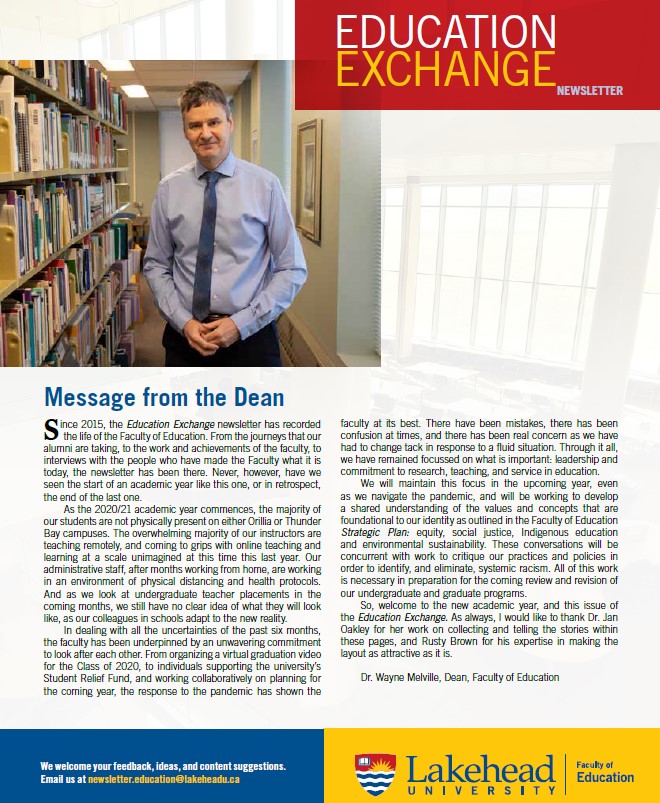Campus Tech
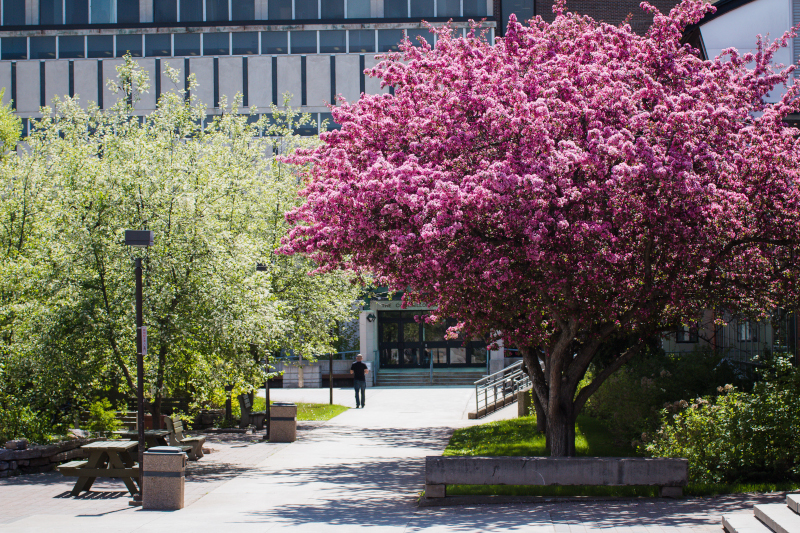

September 10, 2020 – Thunder Bay and Orillia, Ont.
For the second year in a row, Lakehead University has been included in the top half of the Times Higher Education’s list of top universities from around the world.
The 2021 Times Higher Education World University Rankings has Lakehead University in the 601-800 category out of more than 1,500 universities from 93 countries.
“Thank you to our fantastic faculty, staff, students and partners for helping Lakehead University remain in the top half of Times Higher Education’s list of top universities from around the globe,” said Dr. Moira McPherson, Lakehead’s President and Vice-Chancellor.
“This ranking acknowledges Lakehead’s commitment to delivering high quality programs, fostering excellence in research and scholarly work, and providing unique and transformative learning experiences that put our graduates on the path to success,” Dr. McPherson added.
This is the second year that Lakehead University has participated in the rankings and, once again, Lakehead was the only primarily undergraduate university from Ontario to have participated. The University ranked in the same bracket as a number of larger Canadian universities, and ranked above the worldwide median in three of the five categories: Research, Citations, and International Outlook.
“Our notable showing in the Times Higher Education ranking is strongly influenced by the continued recognition of our research impact,” said Dr. Andrew Dean, Vice-President, Research and Innovation.
“Good citation results show that our faculty are viewed as influential in their respective fields,” Dr. Dean added.
In terms of Lakehead’s position in the International Outlook category, James Aldridge,
Vice-Provost, International, explained that “this ranking is a testament to the efforts we’ve made toward the ongoing internationalization of Lakehead University by developing global perspectives through student mobility programs, through promoting cultural intelligence, and by continuing to grow our international student population.
“In 2019, Lakehead was the university of choice for over 1,800 students from more than 75 countries, including over 1,450 undergraduate and graduate international students,” Aldridge said.
The Times Higher Education World University Rankings judges research-intensive universities across each one of their core missions: teaching (the learning environment); research (volume, income and reputation), international outlook (staff, students and research); citations (research influence); industry income (knowledge transfer).
It uses 13 carefully calibrated performance indicators to provide the most comprehensive and balanced comparisons, and all data is independently audited by professional services firm PricewaterhouseCoopers (PwC), making the World University Rankings the only global university rankings to be subjected to full, independent scrutiny of this nature.
– 30 –
Media: For more information or interviews, please contact Brandon Walker, Media, Communications and Marketing Associate, at mediarelations@lakeheadu.ca.
Lakehead University is a fully comprehensive university with approximately 9,700 full-time equivalent students and over 2,000 faculty and staff at two campuses in Orillia and Thunder Bay, Ontario. Lakehead has 10 faculties, including Business Administration, Education, Engineering, Graduate Studies, Health & Behavioural Sciences, Law, Natural Resources Management, the Northern Ontario School of Medicine, Science & Environmental Studies, and Social Sciences & Humanities. In 2019, Maclean’s 2020 University Rankings, once again, included Lakehead University among Canada’s Top 10 primarily undergraduate universities, while Research Infosource named Lakehead 'Research University of the Year' in its category for the fifth consecutive year. Visit www.lakeheadu.ca.
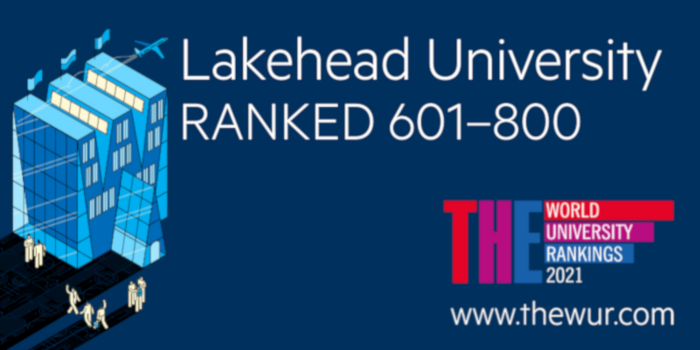
The Finnish Chair Advisory Committee is pleased to announce the appointment of Dr. Aappo Kähönen as the 10th Lakehead University Chair in Finnish Studies.
The Chair in Finnish Studies is an interdisciplinary appointment for one or two terms during the regular academic year. Chairs are chosen by the Advisory Committee through an open competition and are expected to have a significant research profile. Dr. Kähönen is an expert on foreign policy, as well as national state- and border building with a particular emphasis on Soviet-Finnish relations.
Dr. Kähönen will be in Thunder Bay until the end of April. During his time at Lakehead University, he will be conducting a research project entitled “Mobilization, Participation and State relation: Case of a Finnish Community in Canada, 1900–1960.” He will be collecting data on the role of religious, social and political activities, providing a means of participation in the Canadian society for Finnish Canadians.
Dr. Kähönen has taught a wide variety of courses at University of Helsinki, and has given courses in University of Warsaw and in Moscow Lomonosov University (MGU).
During the last three years, his teaching included the following courses: Foundation of Soviet-Finnish relations, 1920–1930, Finnish Contemporary Society and Political Culture In Historical Perspective, 1809– 2016, Theories and Methods of History. In addition to lectures, he has supervised literature examinations on topics such as Modern State and the Birth of Civil Society, History of Integration of Europe, and International and Global System.
Research Interests:
In his doctoral thesis, Dr. Kähönen explained a crisis in Cold War Soviet-Finnish relations in the late 1950s caused by foreign and trade politics, together with the ideological reforms of the Soviet Union. The theoretical background of this research was constructionist paradigm of international relations, which allows the observation of interdependence between foreign and domestic politics, from the perspective of interest groups.
Dr. Kähönen is the author of several publications including the following:
Restrictions permitting, Dr. Kähönen will be making public presentations in Thunder Bay during the fall and winter terms. He is also interested in hearing from Finnish-Canadians and their descendants for his research project and he is looking for opportunities to discuss research with faculty and students.
His office is RB 3017 in the Department of History. He can be contacted via email at aappo.kahonen@helsinki.fi and will soon have a Lakehead University email address.
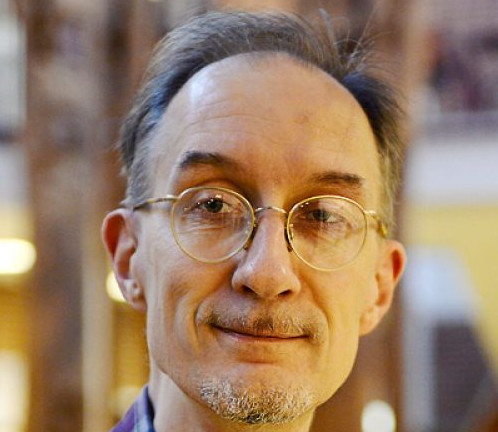
September 21, 2020 – Orillia, Ont.
Dr. Alana Saulnier, an Assistant Professor in Interdisciplinary Studies at Lakehead University, is receiving a Social Sciences and Humanities Research Council of Canada grant to collaborate with Guelph Police to contribute to the overall knowledge surrounding body-worn cameras.
The $25,000 Partnership Engage Grant will allow Dr. Saulnier to spend one year on this important research.
Policing is increasingly reliant on advanced technologies, including body-worn cameras (BWCs). However, reviews of existing research reveal various contradictory results, Dr. Saulnier explained.
“Research documenting police adoption of BWCs in Canada is limited,” she said. “Both the mixed nature of results from international studies and the insufficient amount of domestic research make it challenging for Canadian police services to enact evidence-based decisions about BWCs.”
The partnership with Guelph Police addresses gaps in existing knowledge – such as causal effects of BWC on public perceptions and victims’ concerns with BWCs – that are of critical importance for Canadian police to make informed decisions about BWC, she said.
Dr. Saulnier will use the funds to complete a suite of three projects over one year, with each project contributing to the overall goal of building evidence related to police use of BWCs in Canada by addressing the following research questions:
Dr. Andrew P. Dean, Lakehead’s Vice-President, Research and Innovation, said this project could have wide-ranging impacts.
“This important research will benefit police services in Canada by allowing them to make evidence-based decisions about using BWCs,” Dr. Dean said.
In 2019/20, Lakehead University will receive nearly $2 million in assistance from the Research Support Fund to support the indirect costs of research, which includes costs for supporting the management of intellectual property, research and administration, ethics and regulatory compliance, research resources, and research facilities.
– 30 –
Media: For more information or interviews, please contact Brandon Walker, Media, Communications and Marketing Associate, at mediarelations@lakeheadu.ca.
Lakehead University is a fully comprehensive university with approximately 9,700 full-time equivalent students and over 2,000 faculty and staff at two campuses in Orillia and Thunder Bay, Ontario. Lakehead has 10 faculties, including Business Administration, Education, Engineering, Graduate Studies, Health & Behavioural Sciences, Law, Natural Resources Management, the Northern Ontario School of Medicine, Science & Environmental Studies, and Social Sciences & Humanities. In 2019, Maclean’s 2020 University Rankings, once again, included Lakehead University among Canada’s Top 10 primarily undergraduate universities, while Research Infosource named Lakehead 'Research University of the Year' in its category for the fifth consecutive year. Visit www.lakeheadu.ca.
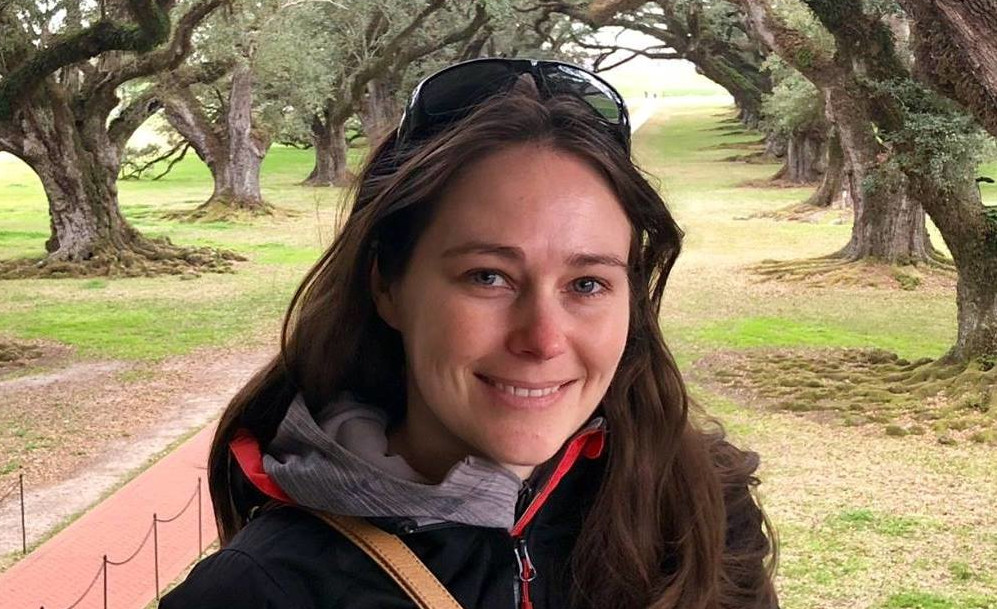
It's September and the Harvie Legacy Library in Simcoe Hall is open Monday, Wednesday and Friday from 9 am to 12 pm, and from 1 to 4 pm.
The Orillia Education Library is closed for fall 2020, but if you need a book from you can place a Click and Collect request using our OMNI search system and the book will be delivered to the Harvie Legacy Library for pick-up.
If you need research help email Chris Tomasini at ctomasin@lakeheadu.ca. Any other library questions including information about our Click and Collect service, email orlib@lakeheadu.ca.
Have a great year!
September 9, 2020 – Thunder Bay, Ont.
Researchers from the Northern Ontario School of Medicine (NOSM) and Lakehead University are receiving more than $330,000 from the Ontario Human Capital Research and Innovation Fund (OHCRIF) for projects that will benefit health-care workers and immigrants.
Dr. Erin Cameron, Dr. Diana Uranijik, Dr. Brianne Wood and John Hogenbirk have received $250,000 from the OHCRIF. Their study, Working models for human capital planning in Northern Ontario: a model for the primary healthcare workforce, will focus on human capital planning in Northern Ontario’s primary care sector.
The study aims to build a consensus model of community-specific needs, recognizing that primary care in the North often includes emergency department coverage and in-patient care. The team will investigate how the workforce of Northern Ontario is evolving differently from that of the rest of Ontario, and will examine models of planning for workforce sustainability involving different demographics and different conditions of health-care demand.
Dr. Cameron, NOSM Assistant Professor, says: “It is an ambitious project, but study findings could help inform provincial agencies, workforce planning boards, communities, employers such as hospitals, primary-care providers, health-care education institutions, Ontario Health Teams, and others to better plan for and respond to community and employer needs within a primary health-care setting.”
This collaborative project builds on existing relationships between NOSM, the Centre for Rural and Northern Health Research (CRaNHR) – Laurentian, and partners from Northern Ontario communities, health-care facilities, and other organizations.
Dr. Cameron and Dr. Wood, postdoctoral fellow, are leading the team from NOSM while Dr. Urajnik, Director, and Hogenbirk, Associate Director, are leading the team from CRaNHR. Community representatives, members of the Northern Ontario Workforce Planning Boards, the Northern Policy Institute, Lakehead University, Laurentian University, and other organizations are also key collaborators on the project.
On another project, Dr. Kathy Sanderson and her team are receiving $83,093 for research that examines how community and organizational welcoming affects the retention and recruitment of new immigrants.
Dr. Sanderson and her team from the Faculty of Business are looking for local employers and community leaders to get involved and share their experience in this area. To find out how you can participate, visit welcomeNWO.ca.
“With the slow population growth in Northwestern Ontario, employers are relying on new immigrants to fill both labour and professional positions,” Dr. Sanderson says.
“While many employers have been successful recruiting new immigrants to the area, long-term retention has been challenging,” she adds.
“We are thrilled to be working with the communities of Atikokan, Sioux Lookout and Thunder Bay to address issues of welcoming and inclusion, with the goal of developing regional strategies to increase human capital.”
Dr. Andrew Dean, Lakehead’s Vice-President, Research and Innovation, says he is excited to see the research outcomes of these important projects.
“Congratulations to our NOSM and Lakehead researchers, and thank you to OHCRIF for supporting these projects,” he says. “Both respond to issues that are unique to our region and will yield meaningful results for improving health-care services and economic development locally and regionally.”
Both projects are funded in part by the Government of Canada and the Government of Ontario.
– 30 –
For further information, please contact:
Brandon Walker, Media, Communications and Marketing Associate
Lakehead University
Phone: (807) 343-8177
Email: mediarelations@lakeheadu.ca
Kim Latimer
Northern Ontario School of Medicine
Phone: 807-621-4303
Email: klatimer@nosm.ca
Lakehead University is a fully comprehensive university with approximately 9,700 full-time equivalent students and over 2,000 faculty and staff at two campuses in Orillia and Thunder Bay, Ontario. Lakehead has 10 faculties, including Business Administration, Education, Engineering, Graduate Studies, Health & Behavioural Sciences, Law, Natural Resources Management, the Northern Ontario School of Medicine, Science & Environmental Studies, and Social Sciences & Humanities. In 2019, Maclean’s 2020 University Rankings, once again, included Lakehead University among Canada’s Top 10 primarily undergraduate universities, while Research Infosource named Lakehead 'Research University of the Year' in its category for the fifth consecutive year.
The Northern Ontario School of Medicine is committed to the education of high-quality physicians and health professionals, and to international recognition as a leader in distributed, learning-centered, community-engaged education and research. NOSM’s 15th annual Northern Health Research Conference is going virtual! Join us on Monday, October 2 at 9:00 a.m. with keynote speaker, Dr. Erin Cameron. Learn more at nosm.ca/nhrc.
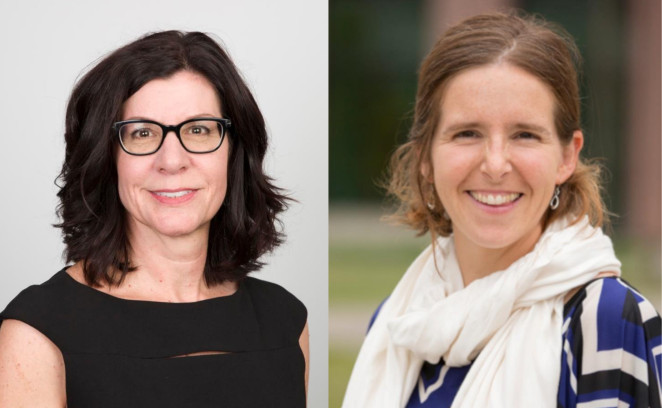
Congratulations to Assistant Professor (School of Nursing) and Director (Centre for Health Care Ethics), Dr. Kristen Jones-Bonofiglio on the publication of her new book entitled Health Care Ethics through the Lens of Moral Distress.
The book is her first peer-reviewed monograph and was published on August 28, 2020 by Springer International (see www.springer.com/book/9783030561550).
Health Care Ethics through the Lens of Moral Distress addresses health care ethics on a personal level and promotes the idea that moral distress experiences can be leveraged to promote positive outcomes. The book is inclusive of all health-care workers and caregivers such as physicians, social workers, and allied health-care professionals.
Health Care Ethics through the Lens of Moral Distress makes a significant contribution to the international bioethics literature by connecting the reader to a wide variety of current academic research in a highly readable format.
Set against the context of a Canadian nursing perspective, she positions health-care providers as ‘wounded healers’ and acknowledges their suffering amidst the messiness of everyday ethical issues in various practice settings. As such, this is a timely publication in light of the recent COVID-19 pandemic.
"I am pleased to see Dr. Jones-Bonofiglio’s book published. The current climate in health care calls for a careful evaluation of the impact of moral distress experiences on health care professionals and students.
"Dr. Jones-Bonofiglio’s scholarship is timely and a great contribution to the existing literature. Her book will be of interest to clinicians as well as academics,” says School of Nursing Director, Dr. Karen McQueen.
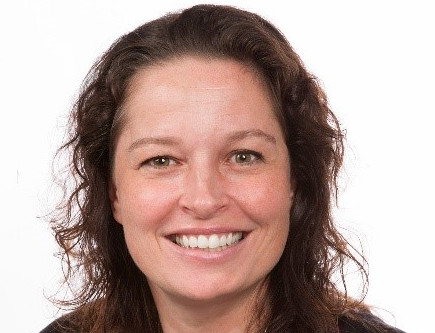
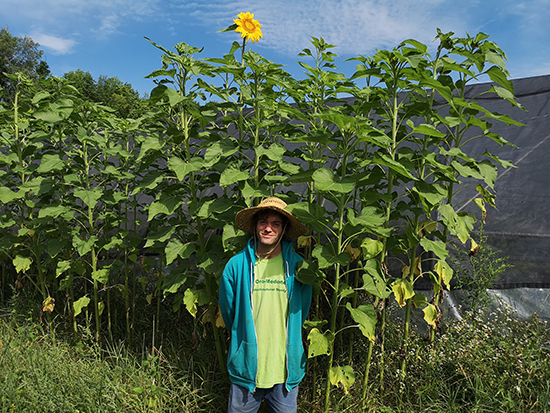
Jacob Kearey-Moreland was contributing to campus life long before he was a Lakehead University student.
This year’s recipient of the Lloyd Dennis Award for outstanding citizenship, Kearey-Moreland has been a driving force behind local community gardening initiatives for over a decade – from Toronto during his undergraduate degree, through community advocacy in Orillia, and now as a graduate student at Lakehead.
A grassroots champion for social and ecological justice, he’s helping secure people’s right to collectively produce and access food, while also preserving public, multi-generational spaces to gather, learn, exercise, and interact.
“Community gardening is as much about growing a community as it is producing food,” says Kearey-Moreland, who grew up on a farm in Simcoe County and now co-owns Bass Lake Farms in Oro-Medonte. “It’s like a communal outlet people can plug into, where social and ecological action can happen together.”
On the Orillia campus, a number of community efforts Kearey-Moreland has helped bring to life are easily spotted: the butterfly garden, the traditional Three Sisters garden, the Four Directions teaching garden, and the community and allotment vegetable gardens are all in view from the large windows of the central Learning Commons. In the background, he also dedicates countless hours to fundraising, event planning, public speaking, advocacy, and outreach. Making good use of social media, strategic networking, and farming-based puns, he’s adept at rallying volunteers with enthusiasm, humour, and information.
And the benefit to students, faculty, staff, and the wider community is clear: university classes, Indigenous ceremonies, and community tours all regularly take place in the gardens, food is produced all summer, and the seeds generated are made freely available in the library. The Lakehead Farm Club Kearey-Moreland founded is now one of the largest student clubs on campus, which he says speaks to gardening’s broad appeal.
“A lot of students face food insecurity, isolation and poverty, and they want a more sustainable campus with more recreation opportunities – gathering outside to socialize and produce your own food solves all those problems.”
Kearey-Moreland’s current focus is his Master of Education – a program with online, flexible formats that allow him to continue farming. His thesis on garden-based learning complements the ideas he pilots on his farm, including hosting school groups and creating youth employment opportunities.
“I want to be part of the societal shift where we teach kids about climate change and food insecurity but also give them the tools to feed their families and communities and work together to sustain life and ecosystems.”
Looking ahead, Kearey-Moreland hopes to translate his degree and community service into making the Lakehead Orillia campus an influential hub for garden-based learning. In the meantime, his initiatives are in even higher demand in the new reality created by COVID-19.
“Community gardening certainly isn’t new – it’s something humans have been doing for 10,000 years or longer. But this pandemic has been an opportunity for many of us to reflect on what is important to healthy societies, ecosystems and economies, and ultimately how we want to be able to grow and access our food.”
Lakehead University’s Lloyd Dennis Award for outstanding citizenship is presented annually to a full-time student at the Orillia campus in recognition of their contributions to the welfare of the university through their student activities. The award is named in honour of the late Lloyd Dennis, an Officer of the Order of Canada and Order of Ontario. He was a highly respected educator and author, best remembered for the 1968 landmark report that shaped the future of education in Ontario – Living and Learning: The Report of the Provincial Committee on Aims and Objectives of Education in the Schools of Ontario, known as the Hall-Dennis Report. An enthusiastic proponent of the Lakehead Orillia campus, in 2009 Dennis was honoured with Lakehead’s Civitas Award and then in 2012 with a Doctor of Laws (posthumously).
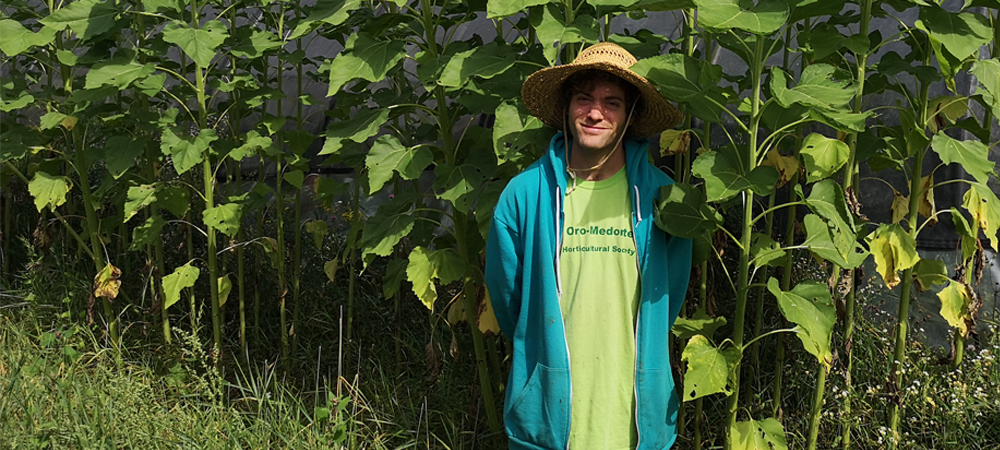
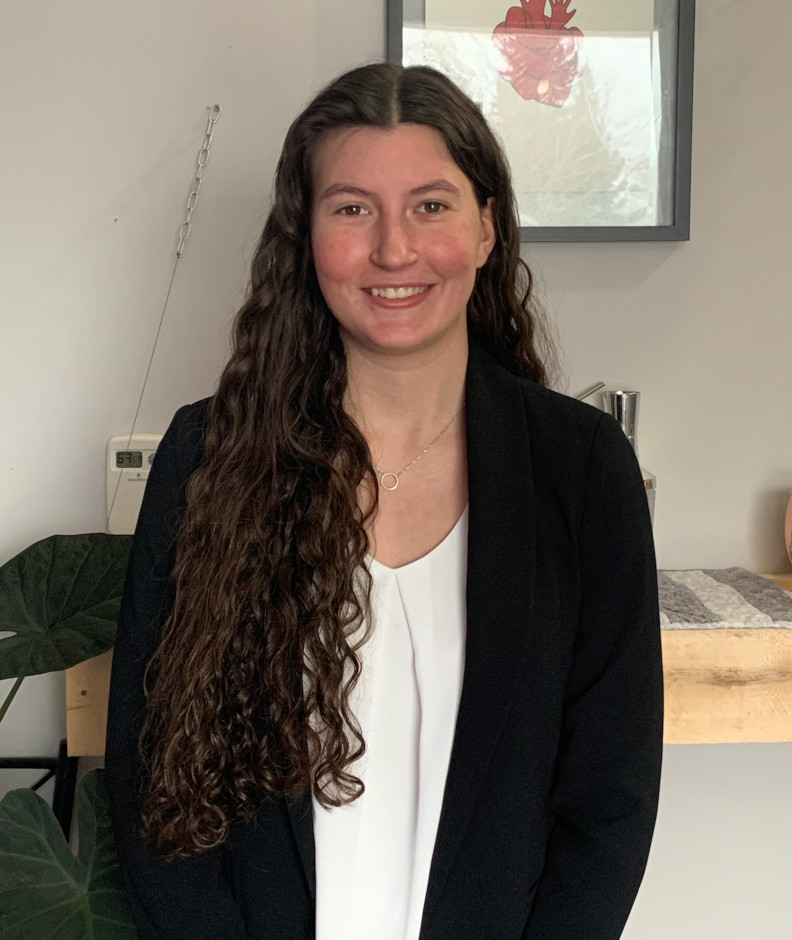
Laura Deschamps
By Brandon Walker
Laura Deschamps is the recipient of this year’s Robert Poulin Award, presented to a full-time Lakehead University student for outstanding citizenship.
Laura made many contributions during her time at Lakehead – to the university and to Thunder Bay. She proposed the creation of a peer-mentoring program in Kinesiology after volunteering as a teacher’s assistant during her fourth year at Lakehead University.
“I realized there was a need to help lower-year students navigate the program after I received several questions about course selection, the thesis process, graduate school applications, among others,” Laura said.
She felt having a program where students could get advice from peers who have gone through the same experiences as them would be incredibly helpful.
Laura began working on the peer-mentoring program during the winter of 2019.
“Through working with the faculty in the Kinesiology department and the staff at the Academic Support Zone, our plan was to start piloting the program in March,” she said. “Unfortunately, due to the COVID-19 pandemic we were unable to launch the program.”
The program may go through some changes before it is launched when in-person classes return to Lakehead University, if not sooner.
It involves selecting third- and fourth-year Kinesiology students who are in good academic standing to provide services, such as time management seminars, study tips or advice that they wish they would have known in previous years to first and second year students.
“This will help students transition successfully to life as a university student,” Laura said.
The program is unique because it offers services driven by what students need.
“For example, time management and study seminars can be offered if needed or mentors can just be there to answer specific questions that students might have about navigating through their undergraduate degree,” Laura said.
The peer-mentoring program will also allow students to foster social relationships with others within Kinesiology, which can further assist them in successfully transitioning to life in university.
Laura has also been very involved in the community. By volunteering with the Special Olympics and on the organizing committee for the Walk to End ALS, Laura was able to make a positive contribution and meet new people.
For Special Olympics, she assisted with track and field and cross-country skiing.
“I have been lucky enough to play sports my whole life and reap the many benefits associated with being active,” Laura said.
“I saw volunteering for the Special Olympics as an opportunity to help others be active and access those same benefits. Without volunteers, many of the athletes would not have an opportunity to participate in sport and physical activity more broadly.”
Laura described this as an amazing experience – a great way to help others.
“It always put a smile on my face seeing the athletes enjoying themselves and forming friendships with each other,” she said.
“It was impossible to be in a bad mood while volunteering for the Special Olympics because the athletes were always so happy and excited to be out participating, and their excitement and happiness were infectious.”
Laura has several fond memories from the Special Olympics, although one particular memory stands out from track and field practice. Two athletes were training for a national event by timing themselves in hope of beating their personal best race times.
“It was amazing to see their drive and desire to do well and their competitiveness,” she said. “It was also great to see the support they were getting from other athletes, pushing them on as they would finish each lap. It was a great example of what sport should be, a place to make friendships, support others and push yourself past your limits.”
Laura has volunteered for the Walk to End ALS for around five years. Last year was the first time she was involved with the committee.
Through her mother, who works for ALS Canada, Laura learned more about the disease and the challenges faced by patients and their families. She realized how difficult the disease could be financially on families, since most of the adapted equipment is not covered.
“I chose to volunteer on the committee to help raise money for equipment, local support and research to help support the people and families living with ALS,” she said.
This year, Laura graduated from Lakehead University with an Honours Bachelor of Kinesiology.
“The program allowed me to experience a mix of theoretical material, often followed by hands-on learning that solidified the course content,” she said, adding that the small-class sizes definitely worked in her favour.
“I was able to assist on several research projects throughout my degree and conduct research for my thesis,” she said. “I strongly recommend Lakehead’s Kinesiology program to any future students.”
Laura will continue her education at the Northern Ontario School of Medicine this fall to pursue her dream of becoming a doctor.
Since 1952, Lakehead University has presented the Robert Poulin Award each year to a full-time student selected by their fellows, the faculty and administration, for contributing most to the welfare of the University through student activities.
Pentti Paularinne was one notable recipient of the award. Paularinne was named Fellow of Lakehead University at the convocation ceremony held on June 2, 2018.
He graduated from Lakehead University with a Bachelor of Arts in 1968 and an Honours Bachelor of Arts in 1969. Paularinne began his career at Lakehead as Admissions Officer in May 1969, moving up to Assistant Registrar Admissions in June 1975, Director of Continuing Education in May 1978 and Registrar in June 1979. He retired in August 2003 as University Registrar and Secretary of Senate. Among his most gratifying tasks was organizing convocation ceremonies for 24 years.
Lakehead named the Robert Poulin Award after an outstanding Forestry graduate from the Lakehead Technical Institute who died at the age of 20 due to an explosion that occurred on a dredge in the Kaministiquia River.
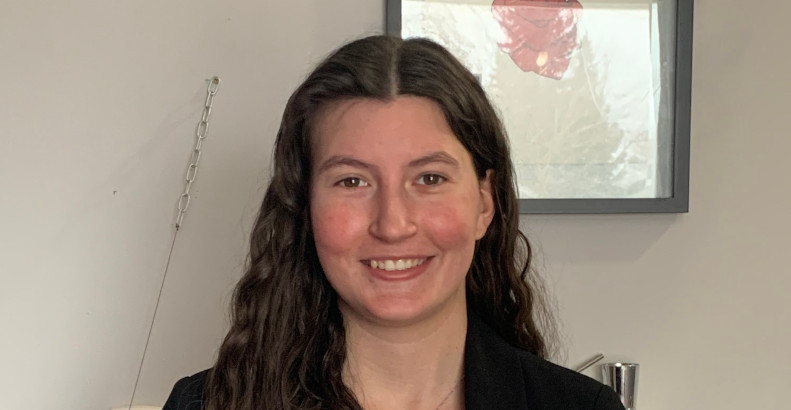
The Faculty of Education's September 2020 newsletter is now available online, including stories about faculty, new appointments, awards, and the move to online teaching.
Read the latest edition here.
